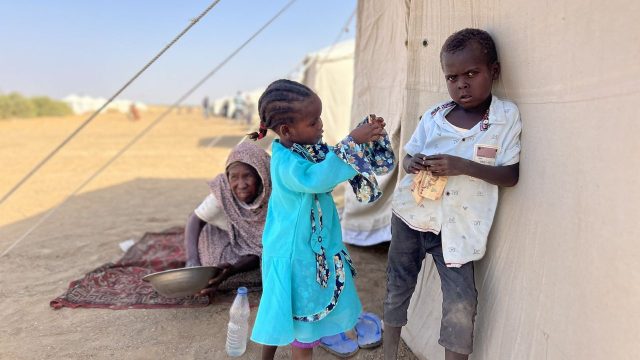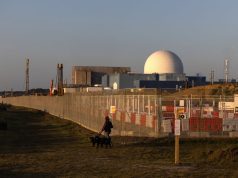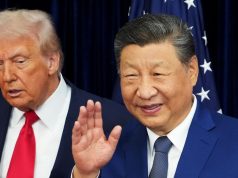
“Sudan’s descent into hell continues inexorably,” said Le Monde (Paris). For months, UN observers have warned that if the notoriously brutal ethnic-Arab militia known as the Rapid Support Forces (RSF) were to capture the besieged city of El Fasher in Darfur, there would be a massacre. And now the horrors predicted are playing out before our very eyes.
Satellite imagery last week showed pools of blood across El Fasher – appalling evidence of mass killings carried out by the RSF following its expulsion of the Sudanese army from the city. Videos circulated on TikTok show RSF soldiers hunting down non-Arab black Sudanese civilians and executing them, said Declan Walsh in The New York Times. One shows RSF fighters stepping over bodies scattered in a room at the university. “A survivor can be seen raising his arm, apparently calling for help, before a fighter shoots him dead.”
The Darfur region of western Sudan is home to at least six million people. Most are black African pastoralist farmers, the majority belonging to the Fur (Darfur means home of the Fur). For two years now they have been oppressed by the RSF, whose fighters are from Darfur’s Arabic-speaking nomadic clans. And all the while, the world has expressed alarm… and done nothing, said Hassan Gibril in Sudan Tribune (Paris) – “a stark reminder” of our “failure to learn from history”. Two decades ago, the Janjaweed militia – the RSF in its earlier guise – slaughtered up to 300,000 black Sudanese in what is widely recognised as a genocide. The catastrophe in El Fasher echoes those “darkest moments”.
Ever since Sudan gained independence from the British in 1956, Sudanese politics has been dominated by a northern elite intent on creating a state based on an Arab-Islamic identity, said Hamdy A. Hassan on The Conversation. And the civil war that has been raging for two years (which accounts for the deaths of at least 150,000 people) is the outcome of rivalry between two Arabic-speaking generals, former allies who had together brutally suppressed the black African insurgency in Darfur in 2003.
One of those generals is now the head of Sudan’s army; the other is the RSF warlord known as Hemedti. And he has been able to pursue his murderous campaign in Darfur with impunity, said Arne Perras in Tages-Anzeiger (Zürich), knowing that with the world’s focus on Gaza and Ukraine, “no one will intervene militarily in this remote part of the world to punish war crimes”.
Far from intervening, some countries – notably the United Arab Emirates – are actively fuelling the conflict, said Jared Malsin in The Wall Street Journal (New York). The Gulf monarchy sees Sudan as a vital hub of influence in the Horn of Africa, given its Red Sea coast and vast gold resources. With this in mind, it has funnelled to the RSF an increasing supply of sophisticated arms, some procured from the EU and UK.
Crucially, those shipments came after the militia had lost control of the capital, Khartoum, to the Sudanese army in March, a moment that could have marked a turning point in one of the worst humanitarian crises in the world this century. Instead, a rearmed RSF has been able to pursue another round of bloodshed – and another genocide.
And with the US and other great powers keeping their distance, there’s no end in sight, said Hafed Al-Ghwell in Arab News (Riyadh). An intractable conflict for which “the global community possesses no effective response” – this is “the shape of wars to come”.
Atrocities in El Fasher follow decades of repression of Sudan’s black African population





